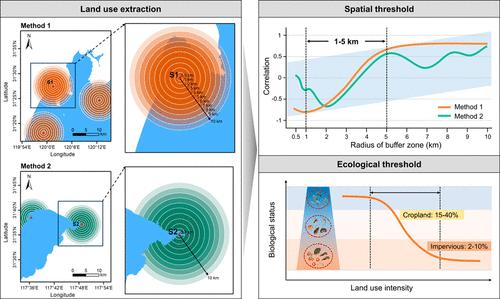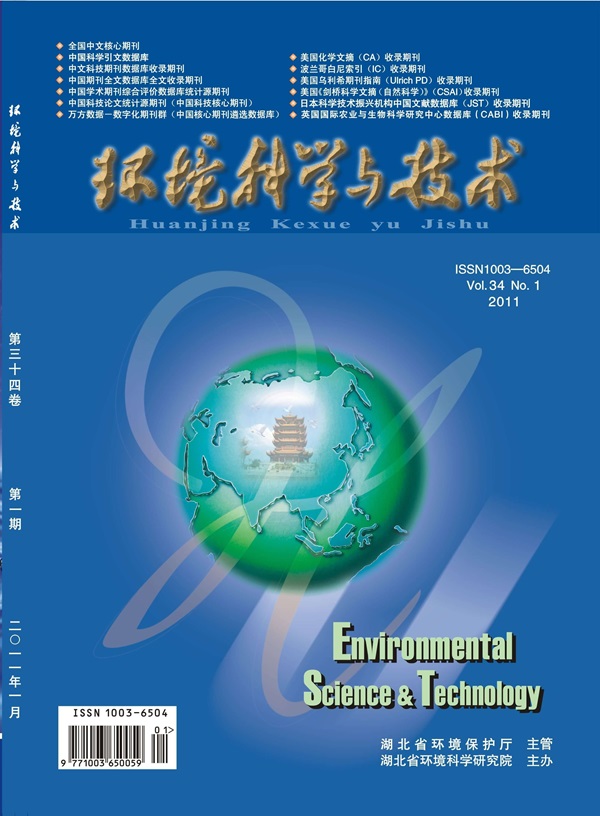Identifying Critical Land Use Thresholds for Biodiversity Conservation in China’s Lake Ecosystems
IF 10.8
1区 环境科学与生态学
Q1 ENGINEERING, ENVIRONMENTAL
引用次数: 0
Abstract
Aquatic biodiversity loss, particularly in rapidly developing nations, continues to raise concerns, prompting urgent debates on reconciling economic growth with environmental preservation through land use planning. While spatial variations in aquatic communities along land use gradients are well-documented, precise ecological thresholds for land use impacts on freshwater lakes remain elusive, hindering sustainable development efforts. This study investigated six representative freshwater lakes in China between 2019 and 2020, all significantly impacted by anthropogenic activities. We utilized macroinvertebrate communities as bioindicators and employed four categories of aquatic ecological metrics─taxonomic diversity, functional diversity, pollution tolerance, and water quality─to assess their responses to local land use patterns. Macroinvertebrate community composition varied significantly among the studied lakes, with pollution-tolerant taxa predominating in highly urbanized and eutrophic systems. Notably, benthic communities exhibited greater sensitivity to urban land use (ecological thresholds: 2–10%) compared to agricultural land use (thresholds: 15–40%). The most pronounced responses were observed within 1–5 km of the lakeshore, with circular buffers yielding more significant effects than fan-shaped buffers, excluding water areas. A novel land use intensity indicator─the ratio of nonecological to ecological land (NEL/EL = area of nonecological land/area of ecological land)─proved effective in predicting ecological shifts. Smaller or heavily urbanized lakes showed marked changes at NEL/EL ratios between 0 and 0.6, while larger or river-connected lakes exhibited shifts at ratios exceeding 1.5. These findings underscore the profound ecological footprint of human activities on lake ecosystems with urban land cover emerging as the most deleterious factor.

求助全文
约1分钟内获得全文
求助全文
来源期刊

环境科学与技术
环境科学-工程:环境
CiteScore
17.50
自引率
9.60%
发文量
12359
审稿时长
2.8 months
期刊介绍:
Environmental Science & Technology (ES&T) is a co-sponsored academic and technical magazine by the Hubei Provincial Environmental Protection Bureau and the Hubei Provincial Academy of Environmental Sciences.
Environmental Science & Technology (ES&T) holds the status of Chinese core journals, scientific papers source journals of China, Chinese Science Citation Database source journals, and Chinese Academic Journal Comprehensive Evaluation Database source journals. This publication focuses on the academic field of environmental protection, featuring articles related to environmental protection and technical advancements.
 求助内容:
求助内容: 应助结果提醒方式:
应助结果提醒方式:


